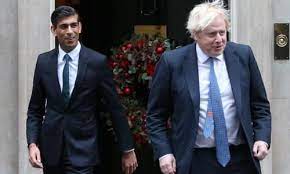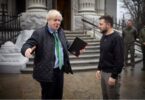Peter Oborne
For all Rishi Sunak’s claims to be a trustworthy prime minister, he is, in fact, in the mould of Boris Johnson. He has made misleading claims from the start of his premiership, and continues to do so. Take his first prime minister’s questions on 26 October last year. To murmurs of approval from Conservative MPs, he told Labour’s Richard Burgon: “We will always support our hardworking nurses.”
To drive home his support, Sunak added: “That is why, when I was chancellor, we reintroduced the nurses’ bursary.” This was a misleading claim, as the new prime minister would have been well aware. It is true that, as chancellor, Sunak offered a new educational grant of £5,000 a year (increasing to £8,000 in some cases) for all nursing students on courses from September 2020. However, this fell significantly short of the bursary system, which had earlier been scrapped by the Conservative government.
It then got worse. In the same PMQs, Sunak told MPs that there had been “a record number of new homes built in the last year”. This claim was false. As a report by the due diligence website Full Fact later concluded: “The most recent published data shows 173,520 new homes were completed in England in the year to June 2022, slightly down on the previous year.” This false claim quickly became an important test for Sunak. His predecessor, Boris Johnson, made scores of such boasts, leaving them on the Hansard record even after they’d been exposed as false. Had Sunak corrected his relatively minor mistakes, as both parliamentary convention and the ministerial code demands, he could have sent a powerful signal. By choosing not to do so, he raises the question: does he share Johnson’s contempt for integrity, even as he claims to lead a government of “integrity, professionalism and accountability at every level”?
The following month, Sunak made another misleading claim in the House of Commons: “Let us remember one thing: we had the fastest vaccine rollout in the world because of our freedoms after leaving the European Union.” In fact, the UK’s vaccines were procured while still a member of the single market and the European Medicines Agency (EMA). Further, the UK’s early rollout was secured by the use of regulation 174, an EU provision allowing member states to bypass the authorisation of the EMA and issue their own medicines.
Sunak entered Downing Street on the back of a promise to bring an end to the apparent disregard for the truth that was a defining feature of the Johnson and Truss premierships. He launched his campaign for the Tory leadership with a pledge to “restore trust, rebuild the economy and reunite the country”. But his claims regarding the truth do not bear serious interrogation.
I assert this with confidence because I have been keeping a record of false claims uttered by British prime ministers ever since the Iraq war began in 2003. My file indicated that Tony Blair’s successors, Gordon Brown, David Cameron and Theresa May, were relatively honest. This is not to say they were perfect. But they were certainly not habitual and shameless liars. All this changed the moment Boris Johnson walked into Downing Street in July 2019. Sunak has surprised me. In common with almost everyone else, I thought he would represent a reversion to traditional politics after the malign chaos of Johnson and Truss. But that has not been the case. Take the promise to “reduce debt”, one of Sunak’s five pledges at the start of 2023. Neither Sunak nor his chancellor, Jeremy Hunt, plan to reduce debt, as the March budget statement made explicit. On the contrary, it appears they mean to increase it substantially, while telling voters the opposite. According to the latest figures from the Office for Budget Responsibility, net debt stood at £2.5tn at the time of the budget, and is projected to rise every year till 2028, by which time it will have advanced to £2.9tn. Sunak should be all too familiar with these numbers.
One former Conservative party communications expert told me that reducing debt “sounded better to voters”. Sunak’s apparent readiness to mislead on such issues could send a message to cabinet subordinates to follow suit. The biggest culprit is the home secretary, Suella Braverman, who seems to operate in a post-truth world: denying that Brexit is to blame for Dover delays, and making inflammatory claims about Pakistani “grooming gangs” that have been proved false by her own officials. The controversy over her speeding fine is the latest test of Sunak’s frequently broken promise to bring integrity back to government. At the G20 summit in Bali, Sunak was asked whether leaving the EU had contributed to Britain’s economic woes. The prime minister responded by talking about the global context, Covid and the war in Ukraine, but not Brexit. This strategy is known to lawyers as suppressio veri (the misrepresenting of the truth by withholding of relevant facts). During international trade week last November, Michael Gove boasted on Twitter: “We’ve secured new free trade deals with over 70 countries since 2016. That’s over £800bn worth of new global trade.” His statement was not correct. Robert Chote, chair of the UK Statistics Authority, has since stated that “it is misleading to describe the £800bn figure as a measure of ‘new global trade’ resulting from the recent deals.”
The health secretary, Steve Barclay, is one of a number of ministers who have made the wild claim that accepting public sector pay demands would cost £1,000 per household. Leading the way in this was Sunak, who appeared in front of an RAF base in Lincolnshire to announce: “What I’m not going to do is ask ordinary families up and down the country to pay an extra £1,000 a year to meet the pay demands of the union bosses.” This prime ministerial claptrap has since been magisterially demolished by Chote. It’s as if Sunak and his ministers don’t respect facts at all.
Or take the environment. Sunak said that “I care about the climate and the environment I’m leaving [my daughters].” His Downing Street spokesman insisted that Britain is “committed to net zero”. Yet as prime minister he has ejected the Cop26 president, Alok Sharma, and the climate minister, Graham Stuart, from the cabinet. He almost did not attend Cop27 and advised King Charles against attending. He is pressing ahead with the opening of a new coalmine in Cumbria.
There’s a further category of misleading or false comments from Sunak: tactical. The Tories are determined to turn Keir Starmer’s role as lieutenant to Jeremy Corbyn in the 2019 general election into a liability. This may explain why the prime minister asserted during PMQs late last year that Corbyn’s national security agenda involved “abolishing our armed forces, scrapping the nuclear deterrent, withdrawing from Nato, voting against every single anti-terror law we tried, and befriending Hamas and Hezbollah”. Labour’s 2019 election manifesto proposed none of the above. Sunak has not corrected these false statements, despite being asked to do so by Jeremy Corbyn. Note, however, that Starmer also emerges poorly from this exchange: the opposition leader did not correct Sunak.
Britain therefore has a monstrous problem. Before Sunak turned up in Downing Street, it was just about possible to explain the collapse of integrity after 2019 in terms of Johnson’s incorrigible personal dishonesty. But Sunak appears to be yet another compulsively dishonest prime minister. This suggests a deep-rooted structural problem not just in the Conservative party but also in the House of Commons. Hence the importance of the ongoing House of Commons privileges committee investigation into allegations that Boris Johnson misled parliament about parties held in Downing Street during lockdown. The committee cannot reach a conclusion about Johnson without making a wider judgment about whether a prime minister should be permitted to mislead the Commons. So the question will arise: what about Sunak?
Sunak’s pledge to bring back trust in British politics, reasserted so many times, appears itself to be insincere. This brings personal discredit, makes good government impossible and demonstrates how deeply political deceit has become embedded in our national life. Something has gone horribly wrong with the British system of government.
The Guardian







